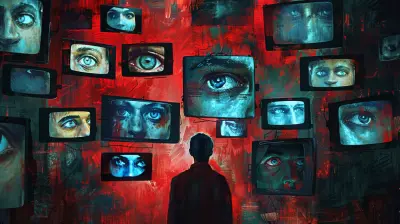How Social Media Affects Adolescents' Emotional Health
19 July 2025
Social media is like the digital playground of today’s world. It’s where teens laugh, share memes, post selfies, and stay connected with friends. But, just like any playground, it's not all swings and sunshine. Behind the polished filters and viral TikToks, there’s another side—one that deeply impacts how adolescents feel about themselves and the world around them.
If you're a parent, teacher, counselor, or just someone who cares about teens, you’ve probably wondered: Is social media doing more harm than good to their emotional health? Let’s dive in and talk about it—honestly and openly.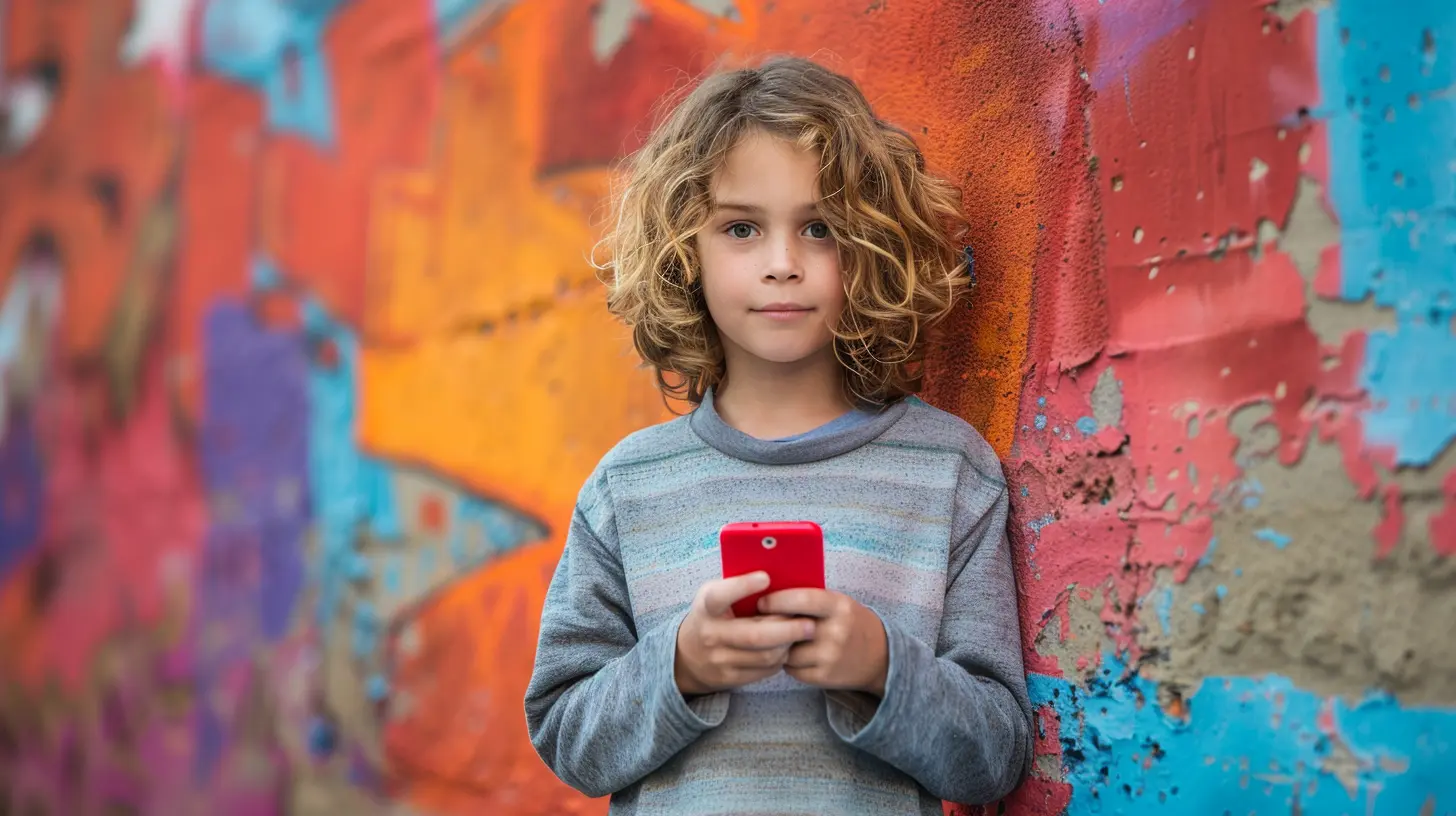
The Double-Edged Sword of Social Media
Social media isn’t inherently bad. In fact, it brings tons of benefits. Teens can connect with others, express themselves creatively, and even build communities around shared interests. But it’s also an emotional rollercoaster.Think of it like a mirror that doesn’t just reflect what’s there—it also distorts. The highs are super high (likes, new followers, viral content), but the lows? They hit hard. Let’s break it down.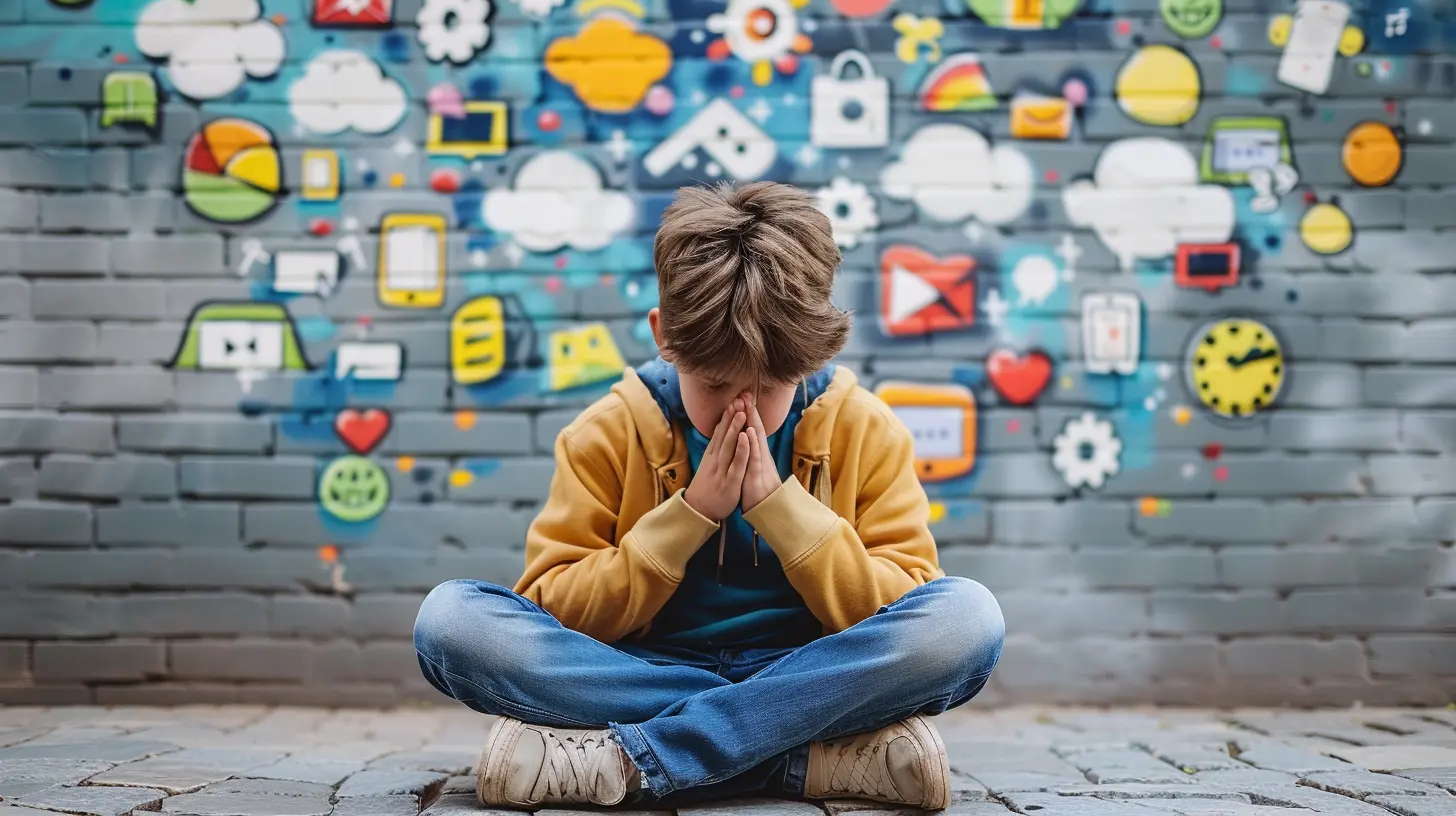
Constant Comparison: The Thief of Joy
Ever scrolled through Instagram and suddenly felt like your life isn't exciting enough? Welcome to the world of comparison, where everyone else’s highlight reel is front and center—and your behind-the-scenes doesn’t feel like it measures up.For adolescents, it’s even more intense. They're already figuring out who they are and where they fit in the world. When their self-worth starts to depend on likes, comments, or followers, it becomes a slippery slope.
Why It Hurts
- Unrealistic Standards: Teens compare their real lives with curated, edited content online. That vacation photo with perfect lighting? It took 50 tries and some heavy filters.- FOMO (Fear of Missing Out): Seeing friends hang out without you? It stings. Teens may feel excluded or question their social value.
- Perceived Popularity: The numbers game—followers and likes—acts like a scoreboard. And when you feel like you’re losing, your confidence takes a hit.
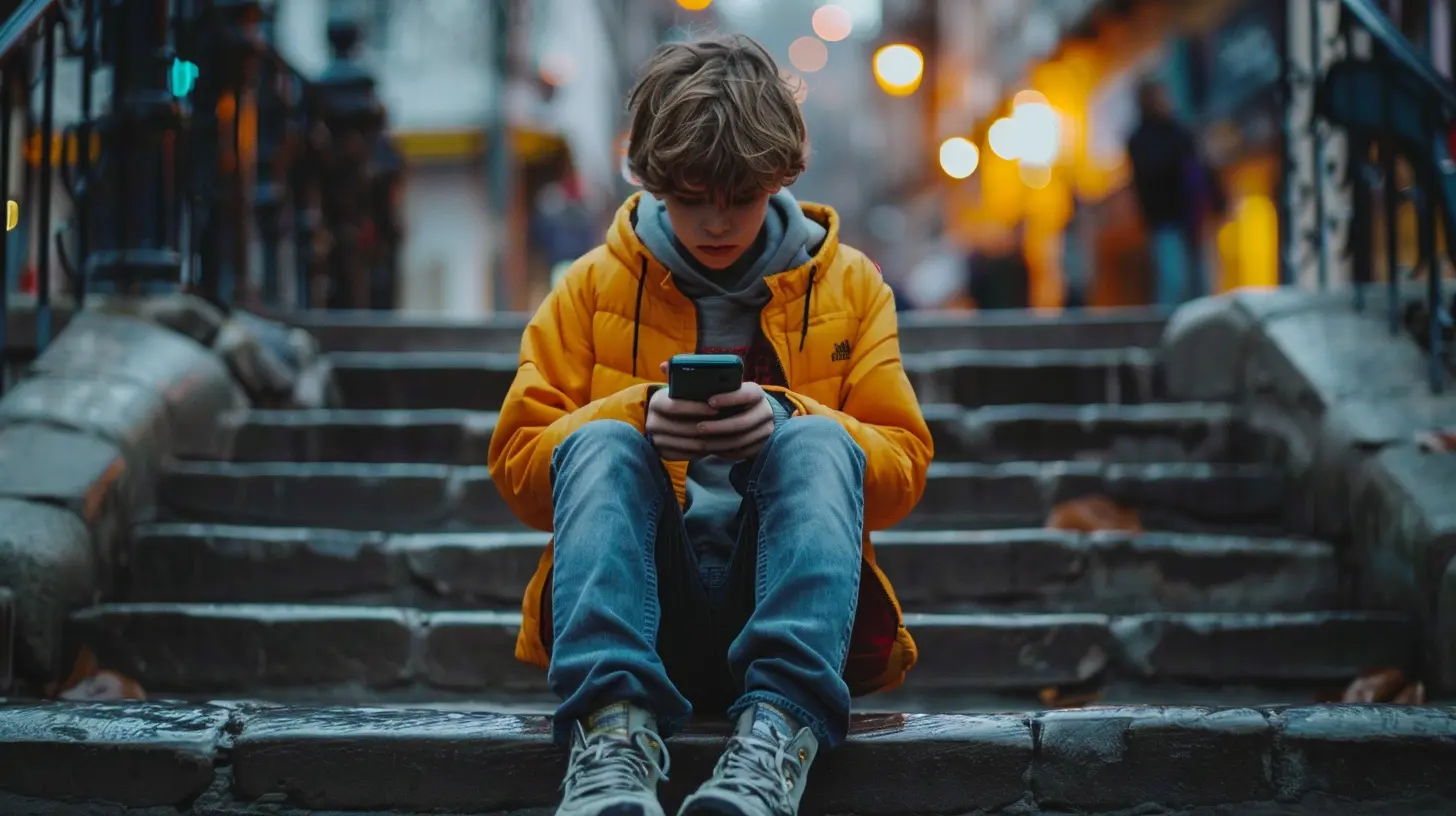
The Mental Health Link: Anxiety, Depression, and More
There’s growing research linking social media use to mental health challenges in adolescents. Don't get me wrong, social media isn't the villain. But for a brain still developing, the pressure and overstimulation can be overwhelming.What the Studies Are Saying
- Increased Anxiety and Stress: Constant notifications, the pressure to reply, or the fear of saying the wrong thing online—it’s exhausting.- Higher Rates of Depression: Especially in those who spend more hours scrolling. It’s not just correlation; cause-and-effect is becoming clearer.
- Sleep Disturbance: Blue light isn't the only culprit. Teens often stay up late checking their phones, worried they’ll miss something important.
Imagine trying to juggle school, family, physical changes, AND the invisible pressures of the online world. No wonder so many teens feel mentally drained.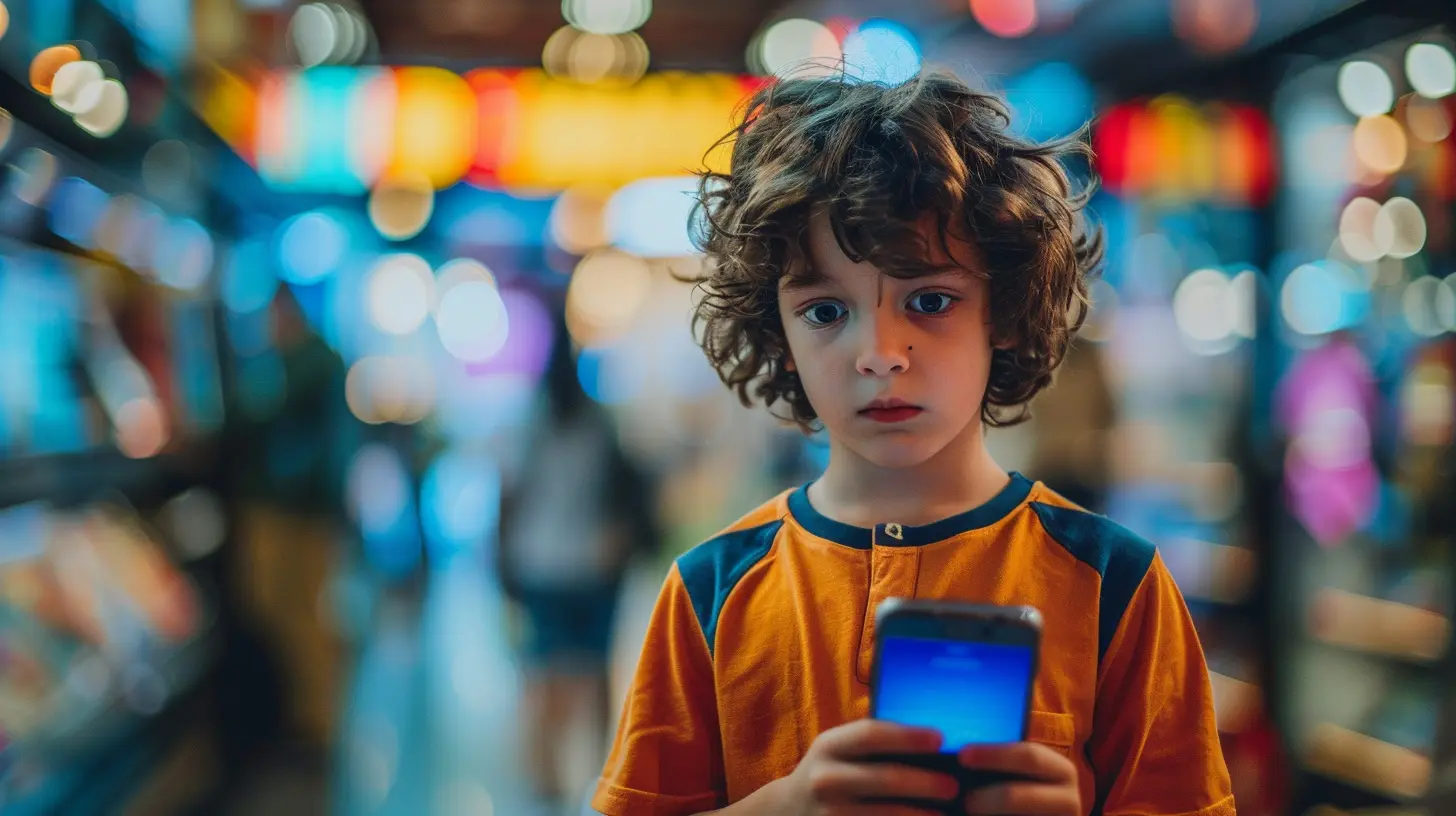
Cyberbullying: The Silent Saboteur
Back in the day, bullying mostly happened at school. Now, it follows adolescents home. It hides in DMs, comments, and anonymous apps.Cyberbullying can be brutal. It’s often subtle, hard to escape, and happens around the clock. And because it’s online, it leaves a digital footprint—a constant reminder of the hurt.
Emotional Impact of Cyberbullying
- Low Self-Esteem: Being targeted online makes teens question their worth.- Isolation: Victims often withdraw socially, feeling ashamed or anxious.
- Suicidal Thoughts: Yes, it can go that far. The emotional toll of relentless bullying can be devastating.
Addiction and Dopamine: Craving That Next Hit
Here’s something wild to think about: Social media apps are designed to be addictive. Ever notice how you check your phone “just for a second” and an hour magically disappears?That’s dopamine at work—the brain’s feel-good chemical. Social media gives tiny hits of dopamine every time someone likes your post or sends a message. Your brain starts craving it, like candy. Over time, teens might rely on social media to boost their mood—a dangerous pattern.
Signs of Social Media Addiction in Teens
- Irritability when not online- Neglecting responsibilities (homework, chores, sleep)
- Using social media to cope with sadness or boredom
- Feeling anxious or down after logging off
The Identity Puzzle: Who Am I Without My Profile?
Teen years are all about discovering identity. Social media adds another layer to that discovery—one that’s more performative than reflective.Think about it: Teens don’t just live experiences anymore, they often think, “Will this make a good post?” That shift changes how they view themselves.
The Risks of Online Identity
- Self-Worth Tied to Appearance: Filters, edits, and validation through likes can warp body image and self-esteem.- Pressure to Conform: Teens may feel they need to fit into online trends, even if it goes against their true nature.
- Fear of Authenticity: The risk of judgment can force teens to be someone they’re not—online and offline.
Social Connection vs. Social Disconnection
We call it social media, but sometimes it makes us feel more alone than ever. Weird, right?Sure, teens are more “connected” than any generation before, but digital interaction lacks what real human connection offers—tone of voice, touch, eye contact, emotional presence.
How It Affects Teen Emotions
- Superficial Interactions: Emojis can’t replace real hugs.- Loneliness: Feeling like you’re always online yet still alone is real and common.
- Neglected Offline Relationships: Online time often replaces family dinners, face-to-face chats, and quality moments.
Building Emotional Resilience in the Digital Era
Now for some good news: We’re not powerless. Social media will always be a thing, but that doesn’t mean it has to harm teens' emotional health. It’s all about balance, awareness, and healthy habits.What Teens Can Do
- Set Boundaries: Create no-phone zones like at dinner or before bed.- Curate Your Feed: Follow accounts that uplift, educate, or inspire. Unfollow those that trigger negative emotions.
- Talk About It: Feel anxious after scrolling? Lonely despite all the messages? Say it out loud. You’re not alone.
What Parents and Adults Can Do
- Model Healthy Use: Kids watch what you do. If you're glued to your phone, they likely will be too.- Encourage Offline Activities: Sports, reading, music, nature—these recharge the soul.
- Open Conversations: Replace lectures with real talks. Ask how they feel about their social media use.
Using Social Media for Good
Let’s not forget—social media isn’t all doom and gloom. There’s beauty in it too.Teens are using platforms to raise awareness, express creativity, find support groups, and build movements. They’re finding their voice. The key is teaching them how to use these digital tools without letting them take the wheel.
Positive Social Media Habits
- Following mental health advocates- Sharing personal stories of growth
- Using privacy settings to protect emotional well-being
- Taking regular breaks (aka “digital detoxes”)
Final Thoughts: It’s About Balance, Not Ban
It’s tempting to think the answer is cutting off social media completely. But let’s be real—that’s neither practical nor helpful. The goal isn’t zero screen time; it’s healthy screen time.Adolescents need guidance more than rules. Empathy more than judgment. When we teach them to navigate social media mindfully, we empower them to protect their emotional health in a digital age that’s constantly evolving.
Let’s keep the conversation going. Ask questions. Stay curious. And most importantly, check in with the teens in your life. They'll thank you for it—maybe not now, but someday soon.
all images in this post were generated using AI tools
Category:
Child DevelopmentAuthor:

Alexandra Butler
Discussion
rate this article
2 comments
Pierce Alexander
Great insights! It's crucial to understand the dual impact of social media on adolescents' emotional health. Awareness and guidance can help navigate these challenges effectively. Thank you for sharing this important topic!
November 22, 2025 at 3:30 AM

Alexandra Butler
Thank you for your thoughtful comment! I'm glad you found the insights valuable. Awareness and guidance are indeed key in addressing these complex challenges.
Zaren McCray
Social media can amplify both connection and anxiety; balance online interactions with real-life relationships for healthier emotional development.
July 27, 2025 at 4:51 PM

Alexandra Butler
Thank you for your insight! Striking a balance between online and offline interactions is crucial for promoting healthier emotional development in adolescents.
